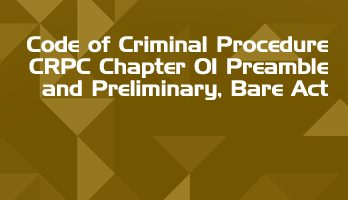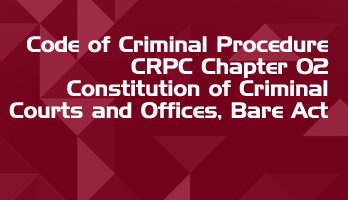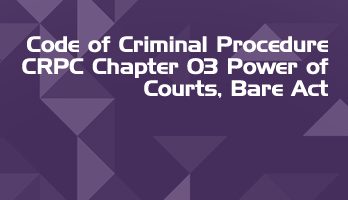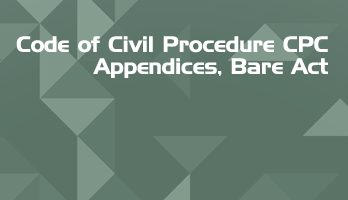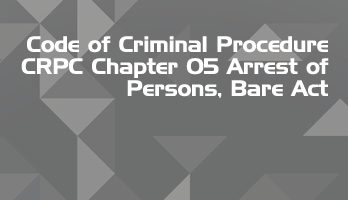A 'Bare act' is the actual legislation passed by the Parliament of India. Generally, an act sets out the high level legal and policy principles applicable to the subject matter of the law.
Most acts are accompanied by 'subsidiary legislation' such as rules, regulations, notifications and orders; which address the actual implementation detail of the act.
Free Full Course Available on LawMint's YouTube Channel
How to Land Your Dream LLB Internship in a Top Law Firm
- Part 1 - Introduction
- Part 2 - Internship Planning
- Part 3 - Internship Research
- Part 4 - Building Your Profile
- Part 5 - The Email
- Part 6 - The Resume
- Part 7 - The Cover Letter
- Part 8 - The Interview
- Part 9 - Self Development
Practical and comprehensive course, with real examples and step-by-step analysis of the complete internship application process. Check out LawMint's YouTube channel now!
The Motor Vehicles Act, 1988
Chapter VII – Construction, Equipment and Maintenance of Motor Vehicles
Section 109 – General provision regarding construction and maintenance of vehicles
- Every motor vehicle shall be so constructed and so maintained as to be at all times under the effective control of the person driving the vehicle.
- Every motor vehicle shall be so constructed as to have right hand steering control unless it is equipped with a mechanical or electrical signalling device of a prescribed nature.
- If the Central Government is of the opinion that it is necessary or expedient so to do in public interest, it may by order published in the Official Gazette, notify that any article or process used by a manufacturer shall conform to such standard as may be specified in that order.
Section 110 – Power of Central Government to make rules
- The Central Government may make rules regulating the construction, equipment and maintenance of motor vehicles and trailers with respect to all or any of the following matters, namely –
- the width, height, length and overhand of vehicles and of the loads carried;
- the size, nature, maximum retail price and condition of tyres, including embossing thereon of date and year of manufacture, and the maximum load carrying capacity;
- brakes and steering gear;
- the use of safety glasses including prohibition of the use of tinted safety glasses;
- signalling appliances, lamps and reflectors;
- speed governors;
- the emission of smoke, visible vapour, sparks, ashes, grit or oil;
- the reduction of noise emitted by or caused by vehicles;
- the embossment of chassis number and engine number and the date of manufacture;
- safety belts, handle bars of motor cycles, auto – dippers and other equipment essential for safety of drivers, passengers and other road user;
- standards of the components used in the vehicle as inbuilt safety devices;
- provision for transportation of goods of dangerous or hazardous nature to human life;
- standards for emission of air pollutants;
- installation of catalytic convertors in the class of vehicles to be prescribed;
- the placement of audio – visual or radio or tape recorder type of devices in public vehicles;
- warranty after sale of vehicle and norms therefor: Provided that any rules relating to the matters dealing with the protection of environment, so far as may be, shall be made after consultation with the Ministry of the Government of India dealing with environment.
- Rules may be made under sub – section (1) governing the matters mentioned therein, including the manner of ensuring the compliance with such matters and the maintenance of motor vehicles in respect of such matters, either generally in respect of motor vehicles or trailers or in respect of motor vehicles or trailers of a particular class or in particular circumstances.
- Notwithstanding anything contained in this section –
- the Central Government may exempt any class of motor vehicles from the provisions of this Chapter;
- a State Government may exempt any motor vehicle or any class or description of motor vehicles from the rules made under sub – section (1) subject to such conditions as may be prescribed by the Central Government.
Section 111 – Power of State Government to make rules
- A State Government may make rules regulating the construction, equipment and maintenance of motor vehicles and trailers with respect to all matters other than the matters specified in sub – section (1) of section 110.
- Without prejudice to the generality of the foregoing power, rules may be made under this section governing all or any of the following matters either generally in respect of motor vehicles or trailers or in respect of motor vehicles or trailers of a particular class or description or in particular circumstances, namely –
- seating arrangements in public service vehicles and the protection of passengers against the weather;
- prohibiting or restricting the use of audible signals at certain times or in certain places;
- prohibiting the carrying of appliances likely to cause annoyance or danger;
- the periodical testing and inspection of vehicles by prescribed authorities and fees to be charged for such test and fees to be charged for such test;
- the particulars other than registration marks to be exhibited by vehicles and the manner in which they shall be exhibited;
- the use of trailers with motor vehicles; and
Important Central Acts in Regional Languages
Legislative department website also features regional language versions of several important Central Acts.
Free Full Course Available on LawMint's YouTube Channel
How to Land Your Dream LLB Internship in a Top Law Firm
- Part 1 - Introduction
- Part 2 - Internship Planning
- Part 3 - Internship Research
- Part 4 - Building Your Profile
- Part 5 - The Email
- Part 6 - The Resume
- Part 7 - The Cover Letter
- Part 8 - The Interview
- Part 9 - Self Development
Practical and comprehensive course, with real examples and step-by-step analysis of the complete internship application process. Check out LawMint's YouTube channel now!








